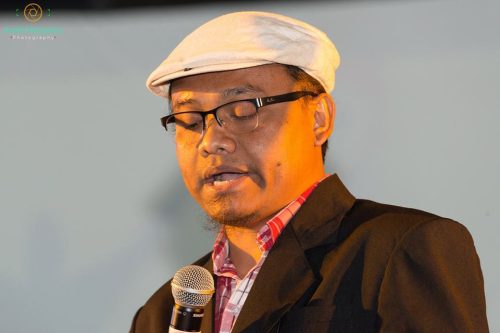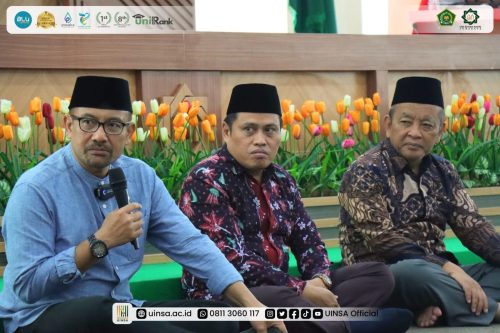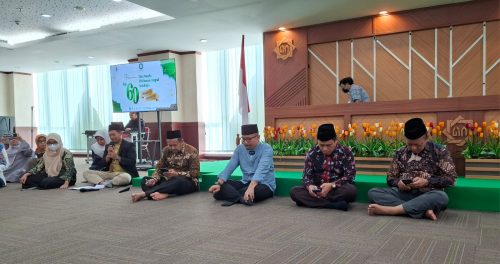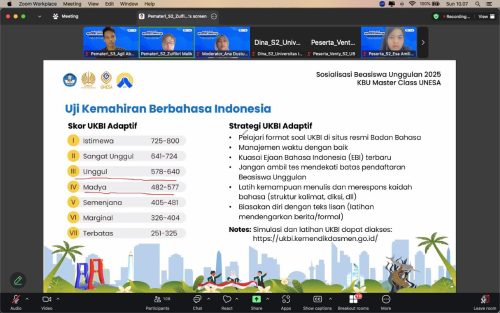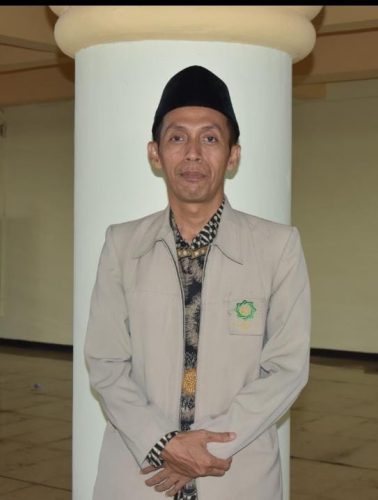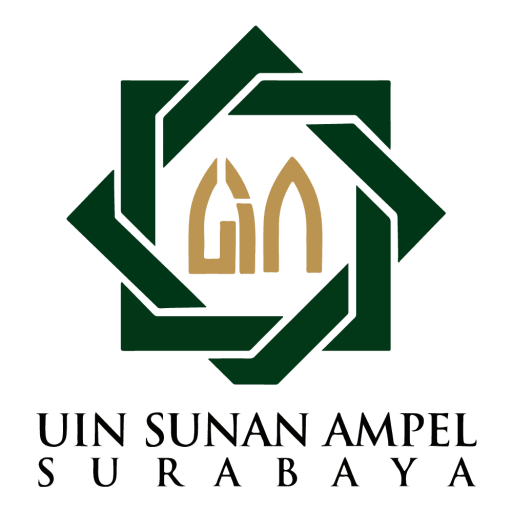EDUCATION IN THE ‘CERTIFICATION REGIME’ ERA
(An Introduction to LSP UINSA)
By: Dr. Yusuf Amrozi, M.MT *
 “We are currently entering an era where a degree does not guarantee competence. An era where graduation does not guarantee readiness to work, and accreditation does not guarantee quality. We are entering an era where attending classes does not guarantee learning,” said Minister of Education and Culture Nadiem Makarim during the handover of the Rectorship at the University of Indonesia (4/12/2019). Nadiem’s statement at that time sparked warm reactions among some academics in higher education. These reactions were because there was an assumption that “oh, Minister is right in saying that because he comes from a professional background.” However, the statement is worth reflecting on together. It means that isn’t that a common occurrence nowadays? At the very least, it serves as a reflection that having a degree does not necessarily guarantee competence in a specific profession. Are our students guaranteed competence after graduation? The author agrees that the success of education lies in making students lifelong learners who are constantly adaptive to their surroundings. Thus, competence, including learner competence, is crucial within it. In terms, competence is defined as the ability needed to perform a job based on knowledge, skills, and work attitudes in its field. Therefore, in the context of work or profession, competence becomes the key; whether someone is competent or not to play a role in that process.
“We are currently entering an era where a degree does not guarantee competence. An era where graduation does not guarantee readiness to work, and accreditation does not guarantee quality. We are entering an era where attending classes does not guarantee learning,” said Minister of Education and Culture Nadiem Makarim during the handover of the Rectorship at the University of Indonesia (4/12/2019). Nadiem’s statement at that time sparked warm reactions among some academics in higher education. These reactions were because there was an assumption that “oh, Minister is right in saying that because he comes from a professional background.” However, the statement is worth reflecting on together. It means that isn’t that a common occurrence nowadays? At the very least, it serves as a reflection that having a degree does not necessarily guarantee competence in a specific profession. Are our students guaranteed competence after graduation? The author agrees that the success of education lies in making students lifelong learners who are constantly adaptive to their surroundings. Thus, competence, including learner competence, is crucial within it. In terms, competence is defined as the ability needed to perform a job based on knowledge, skills, and work attitudes in its field. Therefore, in the context of work or profession, competence becomes the key; whether someone is competent or not to play a role in that process.
In this context, to address the issue of human resource competence in Indonesia and the demands of professional standardization, the government formed a body called the National Professional Certification Agency (BNSP) in 2003. BNSP was established based on Law No. 13 of 2003 concerning Manpower. BNSP has at least three tasks and functions: the implementation and development of the job competency certification system, the implementation and development of the education and vocational training certification system, and the supervision of the national job competency certification system. As a grounding step from this, BNSP then grants a license to industries, professional communities, educational institutions, including universities, through an institution called LSP (Professional Certification Institution), which is similar to an independent accreditation institution in the context of higher education accreditation. Therefore, as certifiers, the main task of this LSP is to carry out competency certification, with the following detailed tasks: creating competency test materials, providing assessors, testing competencies or conducting assessments, compiling qualifications that refer to the National Work Competency Standards (SKKNI), and maintaining the performance of assessors and the Competency Test Place (TUK).
Certainly, LSP (Lembaga Sertifikasi Profesi or Certification Professional Institution) is not a training institution responsible for training the skills of learners. LSP only assesses and issues competence certificates (for those who are competent, on behalf of BNSP). So, how can exam participants be ensured to pass or be competent? This is where the importance of the Study Program comes in, to educate its students towards competence. This can also serve as feedback for the program or university to create an ecosystem for learners to be competent in their field.
At the beginning of certification scheme development, the program must be involved. In fact, this can be considered the program’s “work.” Therefore, the certification scheme to be created must align with the program’s learning outcomes, or there should be courses that students have taken that allow them to master the material being tested in the certification.
Thank God, our campus, UIN Sunan Ampel, is not too far behind in this LSP matter. The proof is that LSP UINSA is the second LSP established after UIN Sunan Kalijaga in the PTKIN environment in Indonesia. LSP UINSA was established based on the Rector’s Decree of UINSA Number 361 of 2021 concerning the Establishment of the Professional Certification Institution UIN Sunan Ampel Surabaya. The personnel team appointed at that time then compiled the required documents to be submitted to BNSP. With various challenges, thank God, BNSP approved it by issuing BNSP Decree Number: KEP. 0310/BNSP/II/2022 concerning the License for LSP UINSA, with a number of competency assessors and competency schemes (https://bnsp.go.id/detaillsp.php?id=3984). Thus, LSP UINSA is formally and legally ready to conduct Competency Tests (UKOM) for UINSA students in several available competency schemes. Following the guidance of the Rector Prof. Muzakki, LSP UINSA needs to quickly add competency schemes that allow all UINSA S1 students to have competencies with a professional certificate licensed by BNSP. In the context of higher education, this competency certificate becomes part of SKPI (certificate accompanying the diploma). Later on, the competency certificate also becomes an added value to boost accreditation scores. I ask for the prayers and support of all, hoping that the mission of improving the quality of graduates through this LSP runs smoothly and our students have competence in the “certification regime” era.
The author is the Chair of LSP UINSA





